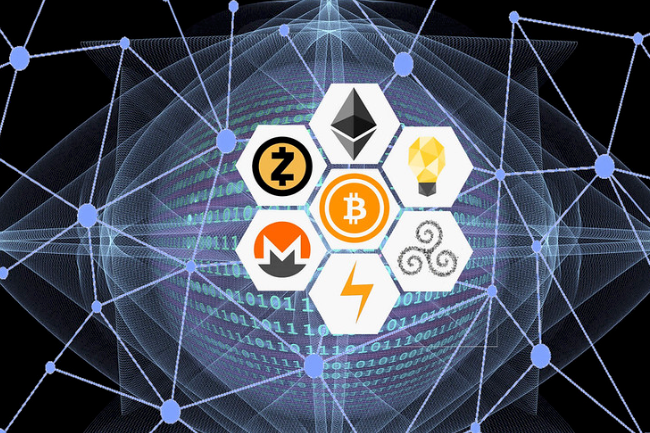Blockchain Technology Vs Artificial Intelligence

Blockchain and AI have become the foundation of growing businesses and successful startups in the constantly changing business landscape. Both technologies have a plethora of applications, facilitating organizations and empowering platforms with efficient ID verification solutions, to serve their customers with a better user experience and fraud prevention.
Without a single iota of doubt, the integration of Blockchain and AI would drive an enormous increase in the global economy. It is to be believed that by the end of 2030, AI and blockchain technology will bring an increase of $15.7 trillion and $3.1 trillion respectively to the world economy.
Table of Contents
How does Blockchain Technology Work?
The technology was first introduced in the early ’90s to prevent tampering with digital documents but went unutilized. The rise of cryptocurrencies was possible through it and thus everyone was introduced to its growing impact.
The technology contains a group of linked blocks of information, showcasing a network open for peers to join. The information once incorporated in the blocks becomes hard to change.
A block usually consists of three parts: data recorded in it, its hash, and a hash of the previous block. Now, the hash is a unique property of a block, it recognizes all the data being stored in the block just like a fingerprint.
It would be appropriate for ID fraud prevention, blockchain is much more complex as the hash always indicates when a change or adjustment has been made to the incorporated data. The hash carries a specific value whose change instantly warns peers about any shady business.
As clear from the name, all data blocks are interconnected with each other. Any change in one would lead to affecting the entire chain as they contain the hash of the preceding block. Resultantly, the hacker or fraudster had to balance the equation by managing data in all present blocks.
Blockchain in KYC/AML
Despite repeated warnings by regulatory bodies regarding customer onboarding and AML policies implementation, many banks, businesses, and financial institutions are facing enormous penalties due to incompetent verification and negligence.
With aid of blockchain technology, the case would be different as every transaction performed leaves a systematic set of information: transactional history that can’t be changed due to the connectivity of all blocks in the chain. A minor change would unbalance the entire ledger.
One of its advantages is also that acknowledging parties are many. Thus responsibility to prevent any scam gets divided. Every person who is part of the chain has access to the ledger and its transactions and any doubtful activity can be detected on the spot.
If the fraudster attempts to make a withdrawal, people associated with the network get instantly aware of it. In case, the type of currency or the location of wallets isn’t authenticated, the transaction would fail.
The combination of Smart Contracts and algorithms of AML solutions based on blockchain technology creates a fraud alert in a second for a doubtful transaction and prevents it.
Artificial Intelligence Model
In today’s competitive age, searching for any business or institution not using AI-powered solutions and software is like looking for a needle in a haystack. The integration of human intelligence and ever-increasing advancements in technology has globally enabled economies to excel.
The statistics of financial crimes and frauds being inclined every year calls for AI-enhanced security and verification solutions for ID fraud prevention and ensuring maximum customer onboarding with no room for errors.
For a thorough ID verification, an AI solution scans and verifies every single character of a customer’s ID, his/her background and associations in a heartbeat. The built-in machine learning algorithms reach perfection through self-learning, perform, and execute with greater accuracy, recognizing any suspect or sudden deviation in a customer’s profile or transactional behavior.
Which Technology is Superior: Artificial Intelligence Or Blockchain Technology?
These two verified systems solutions come with their advantages and demerits. There are a couple of restrictions present in both technologies such as: There are a few fields in the blockchain that can be improved like the scale on which it operates, efficiency, and processing needs to speed up.
Similarly, AI is highly scalable but the fact about not having any privacy worries the user, especially due to increasing cases of ID theft being reported. The due of both technologies brings great expectations. There are multiple processes/scenarios where AI and blockchain can benefit from and compensate for restrictions of each other like:
Data Protection
The AI solutions deal with abundant sets of confidential data, which often gets shared with multiple organizations in different jurisdictions leaving the customer extremely vulnerable. In this case, AI solutions can utilize the blockchain to store data in a more secure manner
Data Marketplace
For AI to function expectedly, an enormous amount of information is purchased from data brokers, blockchain here can be used to store substantial data, being itself a marketplace, companies won’t have to pay anyone for data.
Scalability
Due to the ultrafast computing power and machine learning algorithms of AI, data processing and using it for strategic decisions would be done on a large scale.
Conclusion
The integration of both digital identification solutions is expected to change the future of Enterprise Content Management and data security. Artificial intelligence processes abundant sets of data in a heartbeat and detects minor doubtful changes or patterns, access to every bit makes privacy compromised which can be resolved by blockchain as it’s more secure but not really compatible to AI’s scale. The right merger can generate exceptional results.


